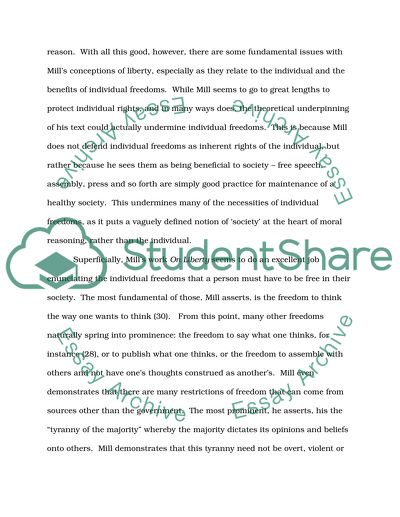Cite this document
(“The fundamental questions of On Liberty by John Stuart Mills Seminal Essay”, n.d.)
The fundamental questions of On Liberty by John Stuart Mills Seminal Essay. Retrieved from https://studentshare.org/literature/1592321-the-fundamental-questions-of-on-liberty-by-john-stuart-mills-seminal
The fundamental questions of On Liberty by John Stuart Mills Seminal Essay. Retrieved from https://studentshare.org/literature/1592321-the-fundamental-questions-of-on-liberty-by-john-stuart-mills-seminal
(The Fundamental Questions of On Liberty by John Stuart Mills Seminal Essay)
The Fundamental Questions of On Liberty by John Stuart Mills Seminal Essay. https://studentshare.org/literature/1592321-the-fundamental-questions-of-on-liberty-by-john-stuart-mills-seminal.
The Fundamental Questions of On Liberty by John Stuart Mills Seminal Essay. https://studentshare.org/literature/1592321-the-fundamental-questions-of-on-liberty-by-john-stuart-mills-seminal.
“The Fundamental Questions of On Liberty by John Stuart Mills Seminal Essay”, n.d. https://studentshare.org/literature/1592321-the-fundamental-questions-of-on-liberty-by-john-stuart-mills-seminal.


